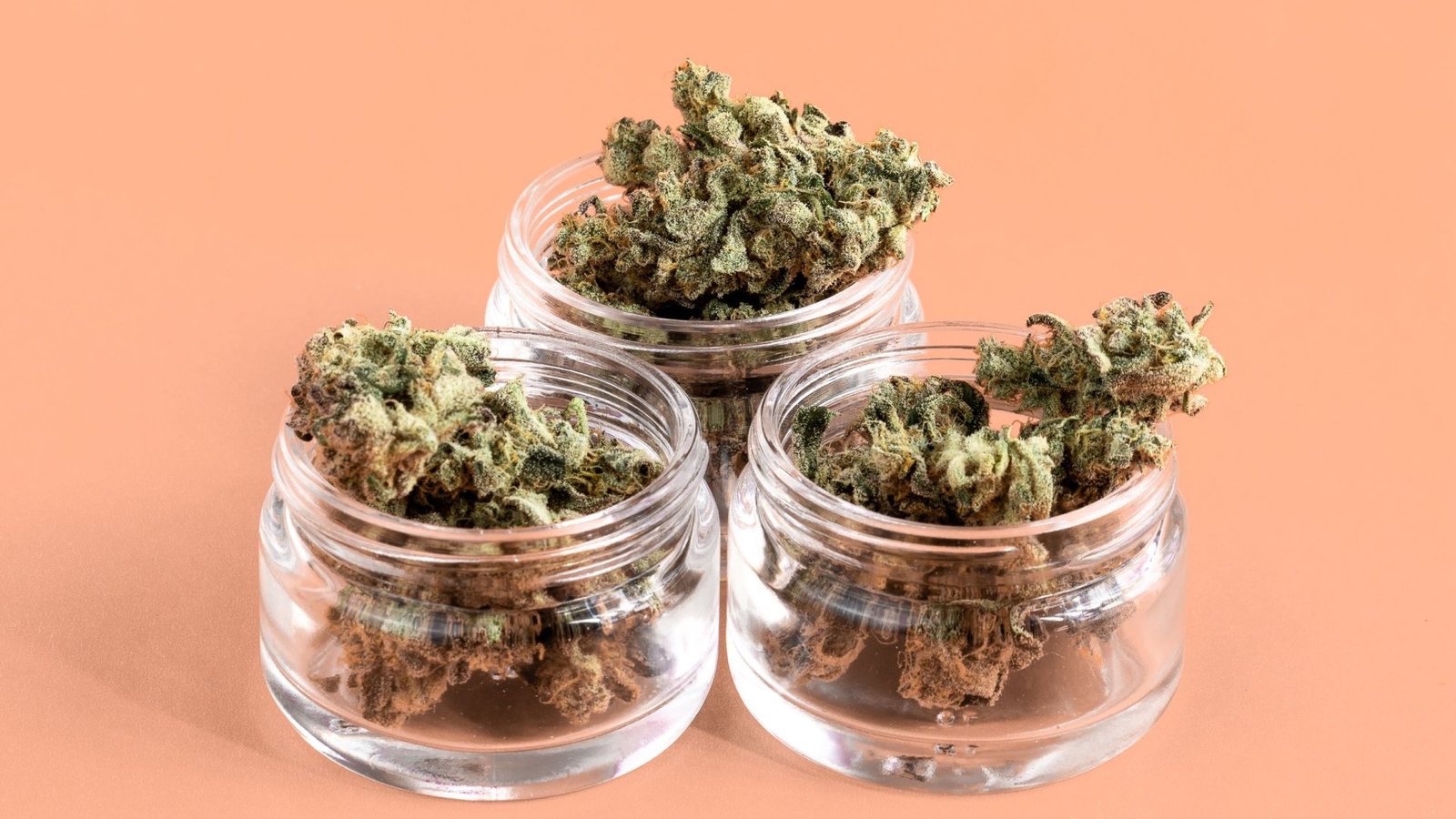As the cannabis industry continues to develop, consumers are presented with an array of cannabinoids beyond the traditional THC and CBD. One of the newer compounds gaining attention is HHC (Hexahydrocannabinol). While THC (Tetrahydrocannabinol) has been the most recognized psychoactive component in cannabis, HHC is emerging as an alternative with its own distinct effects and benefits. This article will break down the differences between HHC vs THC, covering their effects, legality, and uses, while shedding light on what makes each cannabinoid unique.
What is THC?
THC, short for Tetrahydrocannabinol, is the most well-known psychoactive compound found in cannabis. Delta-9 THC is the most commonly recognized form, responsible for the “high” that recreational users seek. When consumed, THC binds with the CB1 receptors in the brain, leading to effects such as euphoria, heightened sensory perception, and altered time perception.
For decades, THC has been studied extensively for its medicinal benefits as well. It has been found to relieve chronic pain, reduce inflammation, stimulate appetite, and alleviate nausea, particularly in cancer patients undergoing chemotherapy. In many places, THC has been legalized for both medical and recreational use, although its legality varies widely across regions.
Introducing HHC
Hexahydrocannabinol, or HHC, is a cannabinoid that is relatively new to the cannabis industry. While it occurs naturally in very small amounts within the cannabis plant, it is typically synthesized from other cannabinoids, such as CBD, through hydrogenation. This process stabilizes the HHC molecule, making it more resistant to heat, light, and degradation compared to THC.
HHC is psychoactive, but reports suggest that its effects are milder than those of delta-9 THC. Some users describe the experience as more relaxing and less mentally stimulating, with reduced chances of anxiety or paranoia, which can sometimes accompany higher doses of THC. This has led to an increase in interest from consumers who are looking for a more balanced cannabis experience.
Potency: HHC vs. THC
When comparing the potency of HHC and THC, it’s important to understand that delta-9 THC remains the most potent cannabinoid in terms of its psychoactive properties. THC’s effects are often described as euphoric, sometimes intense, and can vary depending on the strain, dosage, and the user’s tolerance.
HHC, while still producing psychoactive effects, is generally considered less potent than THC. Many users report that HHC delivers a calmer, more relaxed high without the mental intensity that is often associated with delta-9 THC. This makes HHC a preferred option for people who want a more subtle experience that doesn’t interfere with daily activities or cause feelings of anxiety or paranoia.
Delta-8 THC is another variant that sits between HHC and delta-9 THC in terms of potency. It provides a milder high than delta-9 THC but is still more potent than HHC. HHC’s relative mildness makes it ideal for those who are either new to cannabis or looking for a less intense experience overall.
Legal Status: How Do HHC and THC Compare?
The legal status of HHC and THC is one of the key distinctions between these two cannabinoids. THC, particularly delta-9 THC, is heavily regulated in most parts of the world. Although many U.S. states and countries have legalized THC for medical or recreational use, it remains illegal at the federal level in the United States, and its sale and possession are restricted in many regions.
HHC, however, enjoys a more favorable legal standing in some places due to how it is produced. HHC is typically derived from hemp, which was legalized under the 2018 Farm Bill in the United States, as long as it contains less than 0.3% delta-9 THC. This has allowed HHC to be sold in states where delta-9 THC remains illegal. However, its legal status is not guaranteed, and it exists in a grey area. As regulations around cannabis continue to evolve, the legality of HHC may be subject to change.
Consumers should always check local laws and regulations before purchasing HHC or THC products, as both can have restrictions depending on the region.
Uses and Applications of HHC and THC
Both HHC and THC have a variety of uses, both recreational and medicinal, but their applications can differ based on the potency and effects each compound offers.
THC Uses
THC has a wide range of applications, from recreational to medicinal. Recreational users primarily seek THC for its psychoactive effects, enjoying the euphoria and altered sensory perceptions it provides. For medicinal purposes, THC is used to:
- Relieve chronic pain
- Alleviate nausea, particularly in cancer patients undergoing chemotherapy
- Stimulate appetite in individuals with conditions like HIV/AIDS
- Help with insomnia and sleep disorders
- Reduce inflammation in conditions such as arthritis
THC’s well-established medicinal benefits have made it a popular option in medical cannabis programs across the globe.
HHC Uses
HHC’s uses are still being explored, as it is a newer cannabinoid. However, early reports suggest that it may offer similar benefits to THC with fewer side effects, such as anxiety or mental fog. Because of its more balanced psychoactive effects, HHC is being used for:
- Managing mild to moderate pain
- Providing physical relaxation without the mental cloudiness of delta-9 THC
- Alleviating stress and anxiety
- Offering a more functional high for those who need to remain focused during the day
HHC products, such as gummies, vape cartridges, and tinctures, are increasingly popular among users who prefer a mild psychoactive experience without the stronger effects of THC.
Safety Considerations for HHC and THC
Both HHC and THC are generally considered safe when used responsibly, but there are some important factors to keep in mind. THC’s effects are well-documented, and most users are aware of its potential side effects, such as dry mouth, dizziness, anxiety, or paranoia, particularly with higher doses.
Since HHC is a newer cannabinoid, there is less research on its long-term effects. While initial reports indicate that HHC may have a lower risk of causing anxiety or paranoia, users should still exercise caution. Starting with a lower dose and gradually increasing as needed is recommended to gauge how HHC affects the body.
Moreover, quality is crucial when purchasing HHC or THC products. The cannabis industry is still largely unregulated, so it’s important to buy from reputable brands like CBD Honcho that provide transparent lab testing and clear information on product content. This ensures that consumers are getting safe, high-quality products free of harmful additives.
Current Trends in the Cannabis Market
The popularity of cannabinoids like HHC reflects the increasing demand for diverse options in the cannabis industry. In recent years, consumers have moved beyond just delta-9 THC and CBD, seeking out other cannabinoids such as delta-8 THC, CBN, and now HHC for their unique effects.
HHC products, such as gummies, tinctures, and vape cartridges, are growing in availability, especially in regions where delta-9 THC is restricted. Consumers are drawn to HHC for its milder, more balanced effects and its legal status in areas where THC remains heavily regulated.
As the cannabis industry continues to evolve, HHC is poised to carve out its place alongside more well-known cannabinoids. As more research is conducted, consumers can expect to see a wider range of HHC products hitting the market.
Conclusion
The comparison between HHC vs THC highlights the evolving nature of the cannabis industry. While THC remains the most well-known and potent cannabinoid, HHC offers a new alternative for those seeking a milder, more stable experience. From a legal perspective, HHC’s hemp-derived origins make it a more accessible option in regions where THC is restricted. Whether consumers are looking for recreational enjoyment or medicinal relief, both HHC and THC have a lot to offer.
For those interested in learning more about cannabinoids like HHC and THC, CBD Honcho remains a trusted source of information. Their blog and podcast provide valuable insights into the latest developments in the cannabis industry, helping consumers make informed decisions about their cannabis use.




